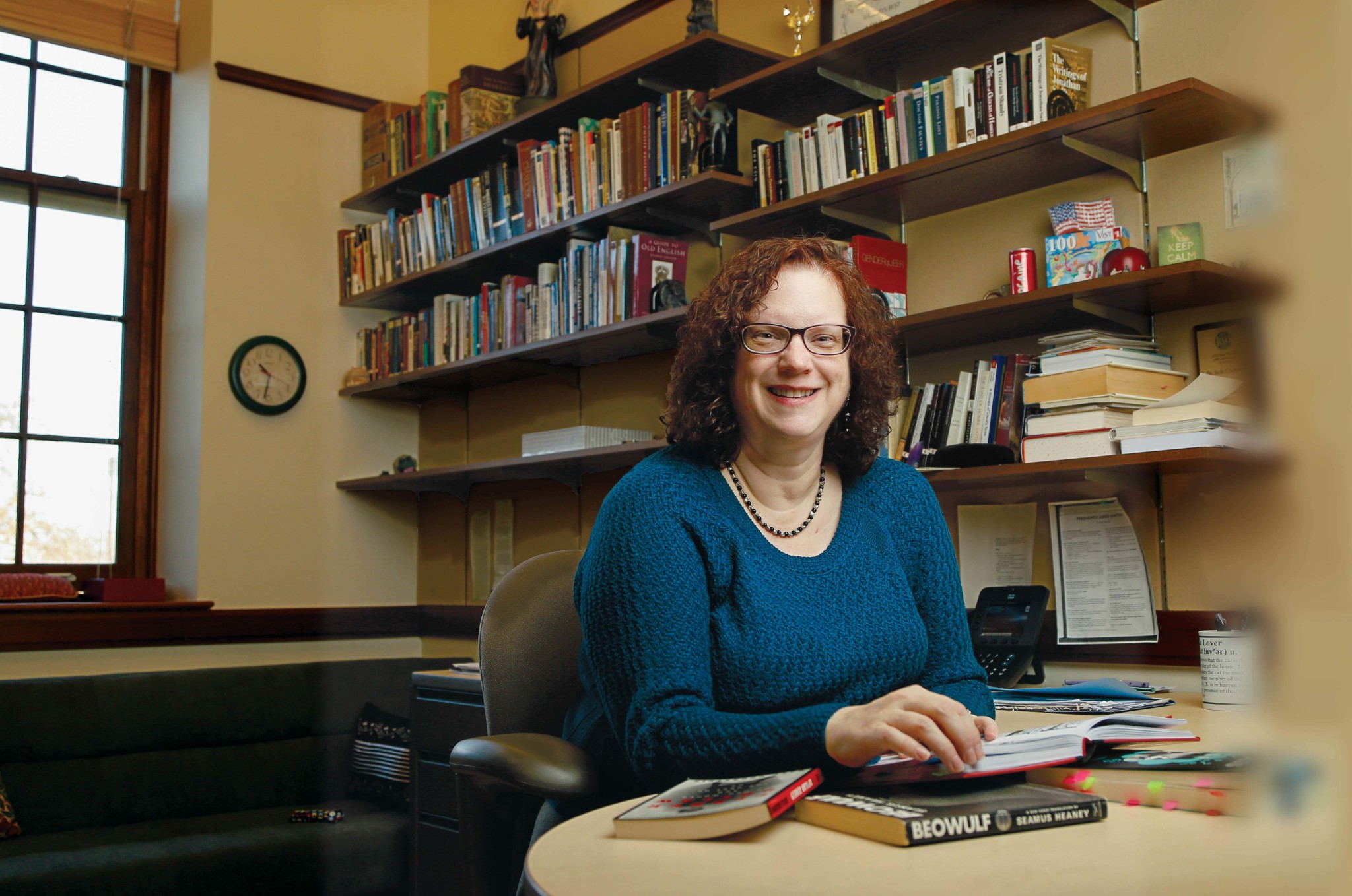
Associate Professor of English
What does the phrase “democratic community” mean to you?
I think of it as self-governing. Not necessarily everybody being a governor, but that the community has representatives and the community chooses them. I think of it as the campus governing itself. Faculty and staff vote on lots of things. We have faculty meetings once a month, and day-to-day work is done by committees that are made up of faculty, many of them are elected, and that’s a good way to get representation. The committees are gender-balanced deliberately to do an end-run around the kind of prejudice that has traditionally affected women.
How does Berea live out this Commitment today?
The commitment lives through all the committees, self-governance mechanisms, and the faculty meetings where you can speak on the faculty floor. I like it that student government has representation in faculty meetings. Are most doors open to students? Can they go see the dean or the associate dean or whomever? Can they go make an appointment and see that person? They can, and I like that because students should have access to everybody on campus, all the way up to the president. Nobody is going to abuse that or waste anybody’s time because students at Berea just don’t do that. So I think there are a lot of places where Bereans can say, “Ok, this is what we want.” And we get it.
How do you interpret the Commitment to encourage “plain living”?
I’m a child of the ‘80s and all its excesses. And I hate excess, so I think of plain living as living within what is necessary for you. That includes what is comfortable for you, even what is a treat for you, even what is fancy for you, but not at the cost of say, being in debt beyond your mortgage. Not at the cost of being able to give to whatever charities you give to. I think life is about other people. And that it’s more about serving people than it is about who has the most toys. How about I call it conscious living? You think about the impact that your actions have on other people, animals and so on. I used to think plain living meant that you eschewed all luxuries, but then I had to think more deeply about it. For example, my husband gets hideously sick from allergies in the summer if we don’t have air conditioning. Condemning that on the basis that it wouldn’t follow someone else’s definition of plain living backfires because without it he would be sick and miserable and not get anything done. For us, having this “luxury” is actually a part of the way we live consciously. So I just like to think about the impact of things that I do and act accordingly. I think most people at Berea do the same.
How do you see this encouragement day-to-day?
There’s a social encouragement toward plain living, at least what I think of as plain living. And it’s not like peer pressure, it’s not like people say, “Oh you won’t be popular if you don’t recycle.” It’s not that sort of thing, but it’s just made easy. For instance, what if you don’t know where you can take this or that thing, like batteries, to be recycled? I can walk down the hall from my office and ask somebody and they’ll know. Actually, there’s a collection box on the third floor of Draper now. It’s a social thing and everybody does it, and that helps in the community.
Berea’s Great Commitments are all interrelated. Describe how you see the Commitment to encourage “plain living” as connected to the Commitment to live in a “democratic community.” Do these Commitments complement each other?
For me, plain living is about the way we are intrinsically connected to other people. What is the impact if I buy a “gas guzzler” car? If I throw away clothes rather than donate them? What is the impact of this behavior and that behavior? It connects back to the democratic community because the people who directly suffer or benefit from the way I choose to live are my neighbors, my friends – the people who govern the college. Both of these Commitments are about other people, and I like that. They’re both about service to other people.

